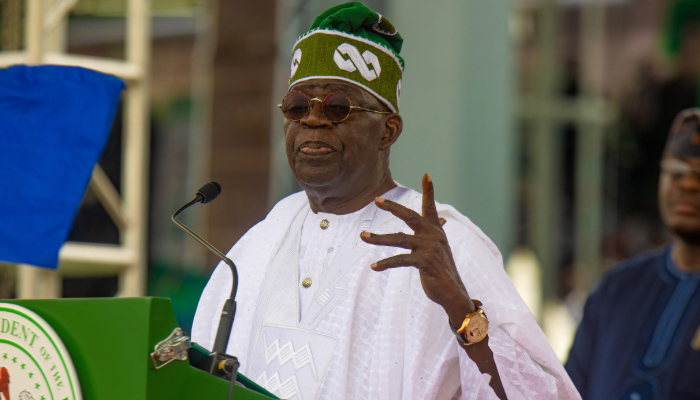The struggle to take over power during the 2023 elections was heavy on ethnic and religious rhetoric, but low on economic strategies for redeeming Nigeria from general economic under-development, poverty, unemployment and other associated malaise. With the election lost and won, President Bola Ahmed Tinubu has made policy pronouncements that reduce the burden on government and the elite, but increase the pains on the ordinary Nigerian, with fuel price increase and devaluation of the naira.
Indeed the current government’s reforms have focused on fiscal and monetary aspects of the economy, without much attention to the agriculture and industrial bases of the economy.
Though the Tinubu administration has said its plans are business-friendly and poised to boost the economy, this government is yet to clearly outline its industrialization strategies for lifting Nigeria from being an informal sector or Small and Medium Scale Enterprises (SMEs) economy.
No country has experienced meaningful economic development without a robust manufacturing or industrial base, and this is evident in contemporary history. Mexico, for instance, had a profile that was similar to that of Nigeria: it was highly dependent on oil export; had a reputation as one of the most corrupt countries in South America; it was governed by maximum rulers, who did not respect the rights of its people; it was crime-ridden, and its people under poverty.
NIGERIA DAILY: PDP Frowns At National Assembly Leaders, Calls For Re-examination
Varsity VC advocates establishment of Scientific Council of Nigeria
But in the last two decades, the story of Mexico has changed, thanks to its strategies for auto manufacturing which has made it one of the car-exporting countries in the world. From being a country replete with car assembling plants, Mexico is now renowned for its auto industry, and as an investment destination for most brands: Mazda, Toyota, Volkswagen, Honda, etc. It is now the world’s seventh-largest car producer. This was achieved through a deliberate industrialization policy.
Another country with a similar history of dramatic growth from devastation and poverty to becoming a manufacturing hub is Vietnam. A country brought to its knees by war and its consequences of poverty has experienced a manufacturing turnaround in a generation through policies that transformed its agriculture, textiles and services sectors.
Nigeria’s haphazard economic policies have not translated to any meaningful industrial development, especially in the contemporary era. Previous Economic Development Plans in the 1970s and 1980s, yielded fruits in the form of textiles and food manufacturing companies, as well as steel rolling mills that should have culminated in a developed Ajaokuta Steel Company as a hub for steel in Africa.
But as a result of corruption and policy somersaults, the country’s baby steps, as evident in these efforts, did not lead to a vibrant industrial development. Rather, Nigeria has become the junkyard of failed and moribund industrial complexes that have been difficult to revive. The eight years of the Buhari government did little or nothing to prove it had an industrialization strategy. The erstwhile administration emphasized infrastructure, SMEs and hand-out grants that were just some cut-and-paste measures from other countries that cannot enable industrialization.
The Tinubu government must realize that Nigeria is at a crossroads and must take the right economic route in its quest for development. In government parlance, emphasis has been on attracting Foreign Direct Investment (FDI), but foreign investors cannot provide an economic direction for Nigeria. Rather, they key into deliberate, well-designed and implemented industrial policies.
The current ‘Japa’ syndrome that has seen Nigerian youths migrate to the West is evidence that the country could compete in terms of skills. The cost of labour in Nigeria is relatively cheap, and its population gives it an advantage in the location of industries. However, foreign industries have not flooded this part of the world due to poor policy frameworks. Manufacturing companies require consistent, competitive, economic conditions, and guaranteed power, security and transportation links to the export of goods.
The experiences of countries that have witnessed a leap from poverty to economic prosperity show that providing the enabling environment is just a foundation for industrialization. The most crucial factors for the growth of industries are bilateral and multilateral trade agreements. Mexico’s growth came as a result of its trade agreements with the United States and auto manufacturing companies. This is what has been lacking in Nigeria over the years.
Nigeria has become a dumping ground for all sorts of manufactured goods from South-East Asia and the West. Substandard and cheap products from South-East Asia, especially, are killing the local manufacturing sector. Government must put in place the right environment for the manufacturers of these goods to set up industries in Nigeria, as they can effectively benefit from our relatively low wages, abundant manpower in the youthful population for labour and the large market in the country’s growing urban population.

 Join Daily Trust WhatsApp Community For Quick Access To News and Happenings Around You.
Join Daily Trust WhatsApp Community For Quick Access To News and Happenings Around You.